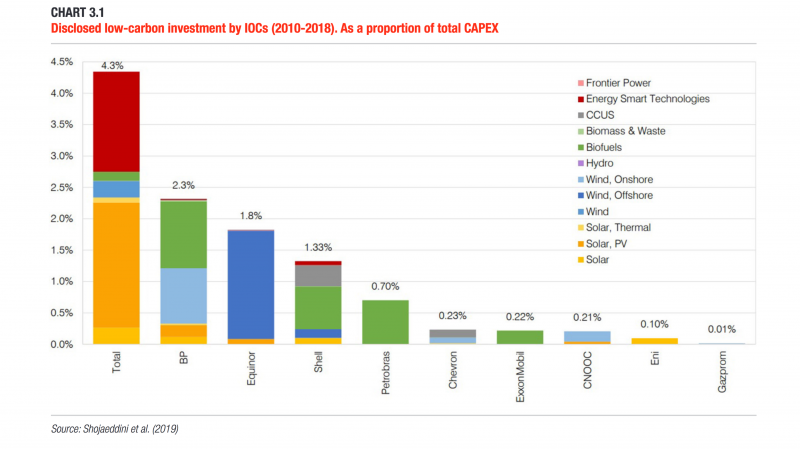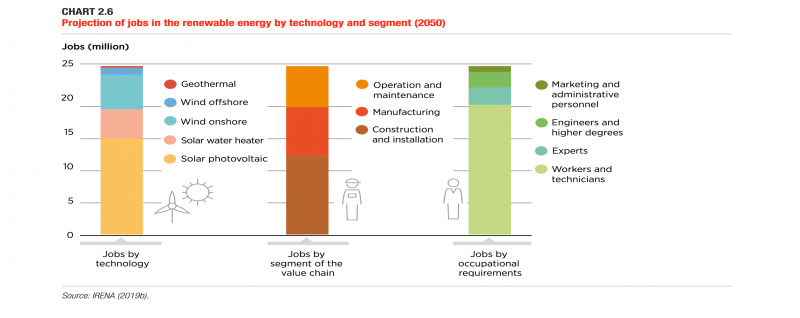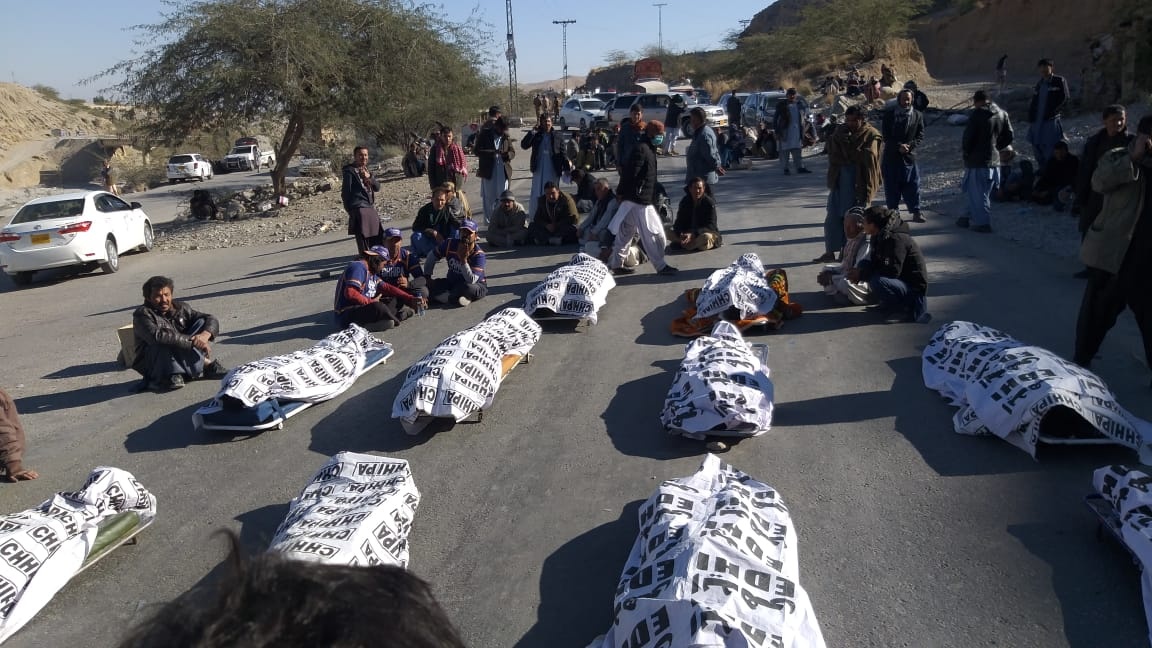The Empire Is Not Done with Julian Assange
As is clear from the memoir of one of his attorneys, Michael Ratner,
the ends have always justified the means for those demanding
his global persecution.
by Chris Hedges
Published on Tuesday, January 05, 2021
by Scheerpost

Assange earned the eternal enmity of the Democratic Party establishment
by publishing 70,000 hacked emails belonging to the Democratic National
Committee and senior Democratic officials. (Photo: Hollie Adams/Getty Images)
Shortly after WikiLeaks released the Iraq War Logs in October 2010, which documented numerous US war crimes — including video images of the gunning down of two Reuters journalists and 10 other unarmed civilians in the Collateral Murder video, the routine torture of Iraqi prisoners, the covering up of thousands of civilian deaths and the killing of nearly 700 civilians that had approached too closely to US checkpoints — the towering civil rights attorneys Michael Ratner and Len Weinglass, who had defended Daniel Ellsberg in the Pentagon Papers case, met Julian Assange in a studio apartment in Central London, according to Ratner’s newly released memoir “Moving the Bar”.
Assange had just returned to London from Sweden where he had attempted to create the legal framework to protect WikiLeaks’ servers in Sweden. Shortly after his arrival in Stockholm, his personal bank cards were blocked. He had no access to funds and was dependent on supporters. Two of these supporters were women with whom he had consensual sex. As he was preparing to leave, the Swedish media announced that he was wanted for questioning about allegations of rape. The women, who never accused Assange of rape, wanted him to take an STD test. They had approached the police about compelling him to comply. “I did not want to put any charges on Julian Assange,” texted one of them on August 20 while she was still at the police station, but “the police were keen on getting their hands on him.” She said she felt “railroaded by the police.” Within 24 hours the chief prosecutor of Stockholm took over the preliminary investigation. He dropped the rape accusation, stating “I don’t believe there is any reason to suspect that he has committed rape.” Assange, although not charged with a crime, cancelled his departure and remained in Sweden for another five weeks to cooperate with the investigation. A special prosecutor, Marianne Ny, was appointed to investigate allegations of sexual misconduct. Assange was granted permission to leave the country. He flew to Berlin. When Assange arrived in Berlin three encrypted laptops with documents detailing US war crimes had disappeared from his luggage.
“We consider the Swedish allegations a distraction,” Ratner told Assange, according to his memoir. “We’ve read the police reports, and we believe the authorities don’t have a case. We’re here because in our view you are in much more jeopardy in the US Len [Weinglass] can explain why.”
Assange, Ratner recalled, remained silent.
“WikiLeaks and you personally are facing a battle that is both legal and political,” Weinglass told Assange. “As we learned in the Pentagon Papers case, the US government doesn’t like the truth coming out. And it doesn’t like to be humiliated. No matter if it’s Nixon or Bush or Obama, Republican or Democrat in the White House. The US government will try to stop you from publishing its ugly secrets. And if they have to destroy you and the First Amendment and the rights of publishers with you, they are willing to do it. We believe they are going to come after WikiLeaks and you, Julian, as the publisher.”
“Come after me for what?” asked Julian.
“Espionage,” Weinglass continued, according to the memoir. “They’re going to charge Bradley Manning with treason under the Espionage Act of 1917. We don’t think it applies to him because he’s a whistleblower, not a spy. And we don’t think it applies to you either because you are a publisher. But they are going to try to force Manning into implicating you as his collaborator. That’s why it’s crucial that WikiLeaks and you personally have an American criminal lawyer to represent you.”
Ratner and Weinglass laid out potential scenarios.
“The way it could happen,” Ratner said, “is that the Justice Department could convene a secret grand jury to investigate possible charges against you. It would probably be in northern Virginia, where everyone on the jury would be a current or retired CIA employee or have worked for some other part of the military-industrial complex. They would be hostile to anyone like you who’d published US government secrets. The grand jury could come up with a sealed indictment, issue a warrant for your arrest, and request extradition.”
“What happens if they extradite me?” asked Julian.
“They fly you to where the indictment is issued,” Weinglass told Assange. “Then they put you into some hellhole in solitary, and you get treated like Bradley Manning. They put you under what they call special administrative measures, which means you probably would not be allowed communication with anyone. Maybe your lawyer could go in and talk to you, but the lawyer couldn’t say anything to the press.”
“And it’s very, very unlikely that they would give you bail,” Ratner added.
“Is it easier to extradite from the UK or from Sweden?” asked Sarah Harrison, who was at the meeting.
“We don’t know the answer to that,” Ratner replied. “My guess is that you would probably have the most support and the best legal team in a bigger country like the UK In a smaller country like Sweden, the US can use its power to pressure the government, so it would be easier to extradite you from there. But we need to consult with a lawyer who specializes in extradition.”
Assange’s British lawyer, also at the meeting, proposed that Assange return to Sweden for further questioning.
“I don’t think that’s wise,” Weinglass said, “unless the Swedish government guarantees that Julian will not be extradited to another country because of his publishing work.”
“The problem is that Sweden doesn’t have bail,” Ratner explained. “If they put you in jail in Stockholm and the US pressures the government to extradite you, Sweden might send you immediately to the US and you’d never see the light of day again. It’s far less risky to ask the Swedish prosecutor to question you in London.”
The US government’s determination to extradite Assange and imprison him for life, despite the fact that Assange is not a US citizen and WikiLeaks is not a US based publication, Ratner understood from the start, will be unwavering and relentless.
In the 132-page ruling (pdf) issued today in London by Judge Vanessa Baraitser of the Westminster Magistrates’ Court the court refused to grant an extradition request only because of the barbarity of the conditions under which Assange would be held while imprisoned in the US.
“Faced with the conditions of near total isolation without the protective factors which limited his risk at [Her Majesty’s Prison] Belmarsh, I am satisfied the procedures described by the US will not prevent Mr. Assange from finding a way to commit suicide,” said Baraitser, “and for this reason I have decided extradition would be oppressive by reason of mental harm and I order his discharge.”
Assange is charged with violating 17 counts of the Espionage Act, along with an attempt to hack into a government computer. Each of the 17 counts carries a potential sentence of 10 years. The additional charge that Assange conspired to hack into a government computer has a maximum sentence of five years. The judge ominously accepted all of the charges leveled by US prosecutors against Assange — that he violated the Espionage Act by releasing classified information and was complicit in assisting his source, Chelsea Manning, in the hacking of a government computer. It is a very, very dangerous ruling for the media. And if, on appeal, and the US has already said it would appeal, the higher court is assured that Assange will be held in humane conditions, it paves the way for his extradition.
Assange has done more than any contemporary journalist or publisher to expose the inner workings of empire and the lies and crimes of the US ruling elite.The publication of classified documents is not yet a crime in the United States. If Assange is extradited and convicted, it will become one. The extradition of Assange would mean the end of journalistic investigations into the inner workings of power. It would cement into place a terrifying global, corporate tyranny under which borders, nationality and law mean nothing. Once such a legal precedent is set, any publication that publishes classified material, from The New York Times to an alternative website, will be prosecuted and silenced.
Assange has done more than any contemporary journalist or publisher to expose the inner workings of empire and the lies and crimes of the US ruling elite. The deep animus towards Assange, as fierce within the Democratic Party as the Republican Party, and the cowardice of the media and watchdog groups such as PEN to defend him, mean that all he has left are courageous attorneys, such as Ratner, activists, who protested outside the court, and those few voices of conscience willing to become pariahs in his defense.
Ratner’s memoir, which is a profile in courage of the many dissidents, including Assange, he valiantly defended, is also a profile of courage of one of the greatest civil rights attorneys of our era. There are few people I respect more than Michael Ratner, who I accompanied to visit Assange when he was trapped in the Ecuadorian Embassy in London. His memoir is not only about his lifelong fight against racial injustice, a rising corporate totalitarianism, and the crimes of empire, but is a sterling example of what it means to live the moral life.
Assange earned the eternal enmity of the Democratic Party establishment by publishing 70,000 hacked emails belonging to the Democratic National Committee and senior Democratic officials. The emails were copied from the accounts of John Podesta, Hillary Clinton’s campaign chairman. The Podesta emails exposed the donation of millions of dollars to the Clinton Foundation by Saudi Arabia and Qatar, and identified both nations as major funders of Islamic State [ISIL/ISIS]. It exposed the $657,000 that Goldman Sachs paid to Hillary Clinton to give talks, a sum so large it can only be considered a bribe. They exposed Clinton’s repeated mendacity. She was caught in the emails, for example, telling the financial elites that she wanted “open trade and open borders” and believed Wall Street executives were best positioned to manage the economy, a statement that contradicted her campaign statements. It exposed the Clinton campaign’s efforts to influence the Republican primaries to ensure that Donald Trump was the Republican nominee. They exposed Clinton’s advance knowledge of questions in a primary debate. They exposed Clinton as the principal architect of the war in Libya, a war she believed would burnish her credentials as a presidential candidate.
The Democratic Party, which routinely blames Russia for its election loss to Trump, charges that the Podesta emails were obtained by Russian government hackers. Hillary Clinton has called WikiLeaks a Russian front. James Comey, the former FBI director, however, conceded that the emails were probably delivered to WikiLeaks by an intermediary, and Assange has said the emails were not provided by “state actors.”
Journalists can argue that this information, like the war logs, should have remained hidden, but they can’t then call themselves journalists.
A few weeks after Ratner’s first meeting with Assange, WikiLeaks published 220 documents from Cablegate, the US State Department classified cables that Chelsea Manning had provided to WikiLeaks. The cables had been sent to the State Department from US diplomatic missions, consulates, and embassies around the globe. The 251,287 cables dated from December 1966 to February 2010. The release dominated the news and filled the pages of The New York Times, the Guardian, Der Spiegel, Le Monde and El País.
“The extent and importance of the Cablegate revelations took my breath away,” Ratner, who died in 2016, wrote in his memoir. “They pulled back the curtain and revealed how American foreign policy functions behind-the-scenes, manipulating events all over the globe. They also provided access to US diplomats’ raw, frank, and often embarrassing assessments of foreign leaders. Some of the most stunning revelations:
In 2009, Secretary of State Hillary Clinton ordered US diplomats to spy on UN Secretary General Ban Ki Moon and other UN representatives from China, France, Russia, and the UK.
The US has been secretly launching missile, bomb, and drone attacks on terrorist targets in Yemen, killing civilians. But to protect the US, Yemeni President Ali Abdullah Saleh told Gen. David Petraeus, “We’ll continue saying the bombs are ours, not yours.”
Saudi King Abdullah repeatedly urged the US to bomb Iran’s nuclear facilities to “cut off the head of the snake.” Other leaders from Israel, Jordan, and Bahrain also urged the US to attack Iran.
The White House and Secretary of State Clinton refused to condemn the June 2009 military coup in Honduras that overthrew elected President Manuel Zelaya, ignoring a cable from the US embassy there that described the coup as “illegal and unconstitutional.” Instead of calling for the restoration of Zelaya, the US supported elections orchestrated by the coup’s leader, Roberto Micheletti. Opposition leaders and international observers boycotted those elections.
Employees of a US government contractor in Afghanistan, DynCorp, hired “dancing boys” — a euphemism for child prostitutes — to be used as sex slaves.
In various cables, Afghan President Hamid Karzai is called “an extremely weak man who did not listen to facts but was instead easily swayed by anyone who came to report even the most bizarre stories or plots against him.” Argentine President Cristina Kirchner and her husband Néstor Kirchner, the former president, are described as “paranoid.” President Nicolas Sarkozy of France is described as “thin-skinned” and “authoritarian.” Italian Prime Minister Silvio Berlusconi is called “feckless, vain, and ineffective.”
Perhaps most important, the cables said that Tunisian President Zine El Abidine Ben Ali had “lost touch with the Tunisian people” and described “high-level corruption, a sclerotic regime, and deep hatred of . . . Ben Ali’s wife and her family.” These revelations led to the eventual overthrow of the regime in Tunisia. The Tunisian protests spread like wildfire to other countries of the Middle East, resulting in the widespread revolts of the Arab Spring of 2011.
Secretary of State Clinton said after the release of the cables, “Disclosures like these tear at the fabric of the proper functioning of responsible government.” Attorney General Eric Holder announced that the Justice Department was conducting “an active, ongoing criminal investigation into WikiLeaks.” Then US Rep. Candice Miller (R-MI) called WikiLeaks “a terrorist organization.” Former GOP Speaker of the House Newt Gingrich called for WikiLeaks to be shut down and Assange treated as “an enemy combatant who’s engaged in information warfare against the United States.”
“For those who ran the American empire, the truth hurt,” Ratner writes. “For the rest of us, it was liberating. With the 2010 release of the Collateral Murder video, the Afghan War Logs, the Iraq War Logs, and Cablegate, WikiLeaks went far beyond traditional investigative reporting. It proved that in the new digital world, full transparency was not only possible, but necessary in order to hold governments accountable for their actions.”
“On November 30, 2010, two days after the initial release of Cablegate, Sweden issued an Interpol ‘Red Alert Notice’ normally used to warn about terrorists,” Ratner goes on. “It also issued a European Arrest Warrant seeking Assange’s extradition to Sweden. Since he was wanted only for questioning about the sexual misconduct allegations, it seemed clear from the timing and severity of the warrant that the US had successfully pressured the Swedes.”
The efforts to extradite Assange intensified. He was held for ten days in solitary confinement at Wandsworth Prison before being released on bail of 340,000 pounds. He spent 551 days under house arrest, forced to wear an electronic anklet and check in with police twice a day. Visa, Mastercard, Bank of America, and Western Union refused to process donations to WikiLeaks.
“It became virtually impossible for anyone to donate to WikiLeaks, and its income immediately plummeted by 95 percent,” Ratner writes. “But none of the financial institutions could point to any illegal activity by WikiLeaks, and none had imposed any restrictions on WikiLeaks’ mainstream co-publishers. The financial blockade applied only to WikiLeaks.”
Ratner was soon spending several days a month in England conferring with Assange and his legal team. Ratner also attended the trial at Fort Meade in Maryland for Chelsea Manning (then Bradley Manning), certain that it would illuminate how the US government intended to go after Assange.
“Prosecutors in the Bradley Manning case revealed internet chat logs between Manning and an unnamed person at WikiLeaks who they said colluded with Manning by helping the accused traitor engineer a reverse password,” he writes. “Without supporting evidence, prosecutors claimed the unnamed person was Assange. Both Manning and Assange denied it. Nonetheless, it was clear that what Len [Weinglass] and I had predicted was happening. The case against Bradley Manning was also a case against WikiLeaks and Julian Assange. The two were inextricably linked.”
Manning was charged with 22 violations of the Uniform Code of Military Justice and the Espionage Act, including aiding the enemy — which carries a possible death sentence — wrongfully causing intelligence to be published on the internet, and theft of public property.
“I couldn’t get over the irony of it all,” Ratner writes. “On trial was the whistle-blower who leaked documents showing the number of civilians killed in Iraq, the Collateral Murder video, Reuters journalists being killed, children being shot. To me, the people who should be the defendants were the ones who started the Afghan and Iraq wars, George W. Bush and Dick Cheney, the officials who carried out torture, the people who committed the very crimes that Bradley Manning and WikiLeaks exposed. And those who should be observing were the ghosts of the dead Reuters journalists and the ghosts of the children and others killed in Iraq and Afghanistan.”
“A week after Manning’s arraignment, WikiLeaks published an internal e-mail dated January 26, 2011 from the private intelligence firm Strategic Forecasting (Stratfor),” Ratner goes on. “Part of a trove of five million e-mails that the hacker group Anonymous obtained from Stratfor’s servers, it was written by Stratfor Vice President Fred Burton, a former State Department counter-terrorism expert. It stated clearly: ‘We have a sealed indictment on Assange. Pls protect.’ Another of Burton’s e-mails was more vivid: ‘Assange is going to make a nice bride in prison. Screw the terrorist. He’ll be eating cat food forever.’”
“The e-mails revealed how far the US government would go to protect its dirty secrets, and how it would use its own secrecy as a weapon,” Ratner writes. “Somehow Stratfor, which has been called a shadow CIA, had information about this sealed indictment that neither WikiLeaks, Assange, nor his lawyers had.”
Jeremy Hammond was sentenced to the maximum ten years in federal prison for the Stratfor hack and leak. He remains imprisoned.
On June 14, 2012, the UK Supreme Court issued its verdict affirming the extradition order to Sweden. Assange, cornered, was granted political asylum in the Ecuadorian embassy in London where he would remain for seven years until British police in April 2019 raided the embassy, sovereign territory of Ecuador, and placed him in solitary confinement in the notorious high-security HM Prison Belmarsh.
The arrest eviscerates all pretense of the rule of law and the rights of a free press. The illegalities, embraced by the Ecuadorian, British and US governments, in the seizure of Assange were ominous. They presaged a world where the internal workings, abuses, corruption, lies and crimes — especially war crimes — carried out by corporate states and the global ruling elite will be masked from the public. They presaged a world where those with the courage and integrity to expose the misuse of power will be hunted down, tortured, subjected to sham trials and given lifetime prison terms in solitary confinement. They presaged an Orwellian dystopia where news is replaced with propaganda, trivia and entertainment.
Under what law did Ecuadorian President Lenin Moreno capriciously terminate Julian Assange’s rights of asylum as a political refugee? Under what law did Moreno authorize British police to enter the Ecuadorian Embassy — diplomatically sanctioned sovereign territory — to arrest a naturalized citizen of Ecuador? Under what law did Prime Minister Theresa May order the British police to grab Assange, who has never committed a crime? Under what law did President Donald Trump demand the extradition of Assange, who is not a US citizen and whose news organization is not based in the United States?
“As a journalist and publisher of WikiLeaks, Julian Assange had every right to asylum,” Ratner writes. “The law is clear. The exercise of political free speech — including revealing government crimes, misconduct, or corruption — is internationally protected and is grounds for asylum. The US government has recognized this right, having granted asylum to several journalists and whistleblowers, most notably from China.”
“My view is that mass surveillance is not really about preventing terrorism, but is much more about social control,” Ratner writes. “It’s about stopping an uprising like the ones we had here in the US in the ’60s and ’70s. It shocks me that Americans are passively allowing this and that all three branches of government have done nothing about it. Despite mass surveillance, my message for people is the same one that Mother Jones delivered a century ago: organize, organize, organize. Yes, the surveillance state will try to scare you. They will be watching and listening. You won’t even know whether your best friend is an informant. Take whatever security precautions you can. But do not be intimidated. Whether you call it the sweep of history or the sweep of revolution, in the end, the surveillance state cannot stop people from moving toward the kind of change that will make their lives better.”

Chris Hedges is a Pulitzer Prize–winning journalist who was a foreign correspondent for fifteen years for The New York Times, where he served as the Middle East Bureau Chief and Balkan Bureau Chief for the paper. He is the host of the Emmy Award-nominated RT America show On Contact. His most recent book is "America: The Farewell Tour" (2019).










